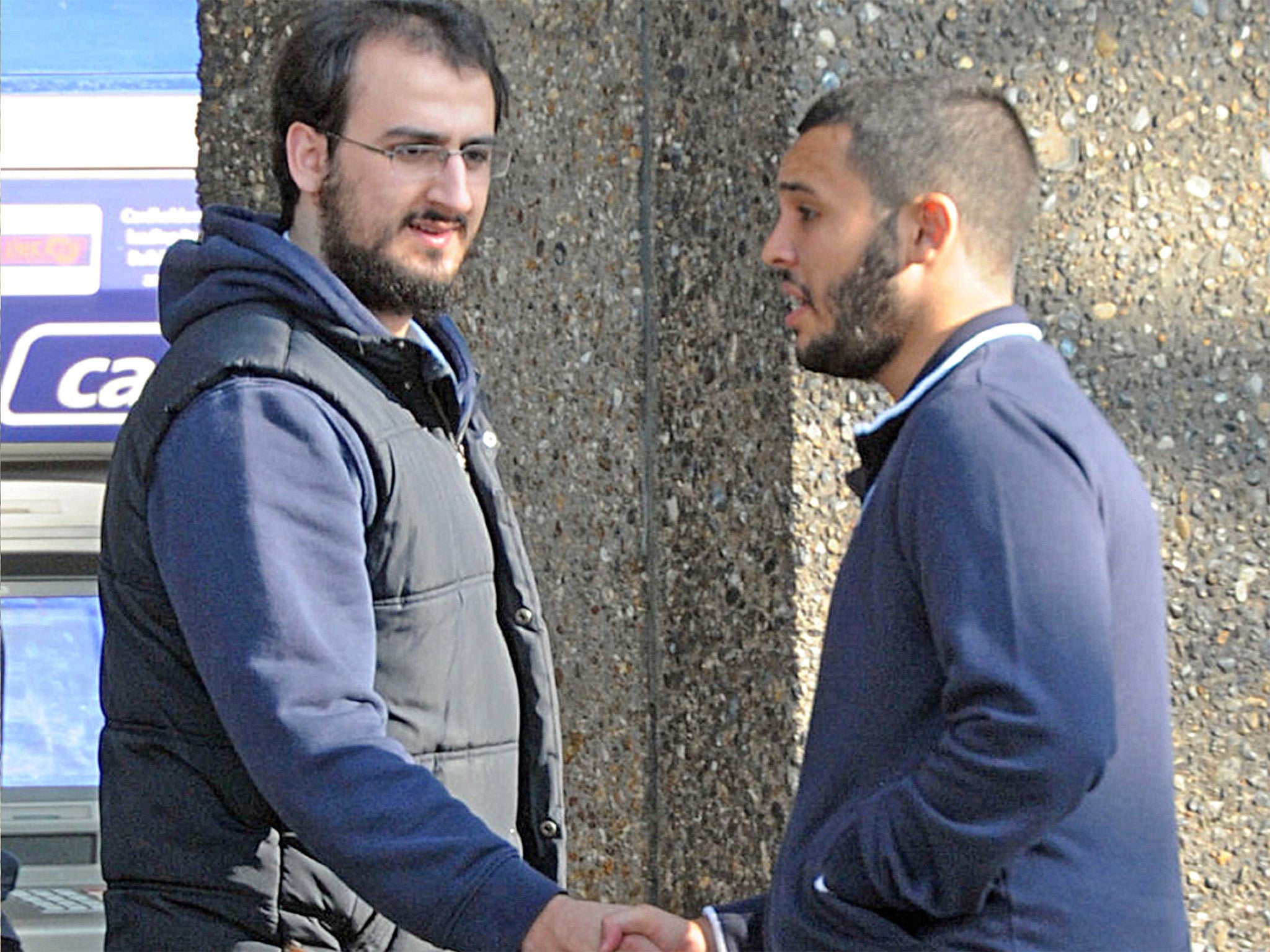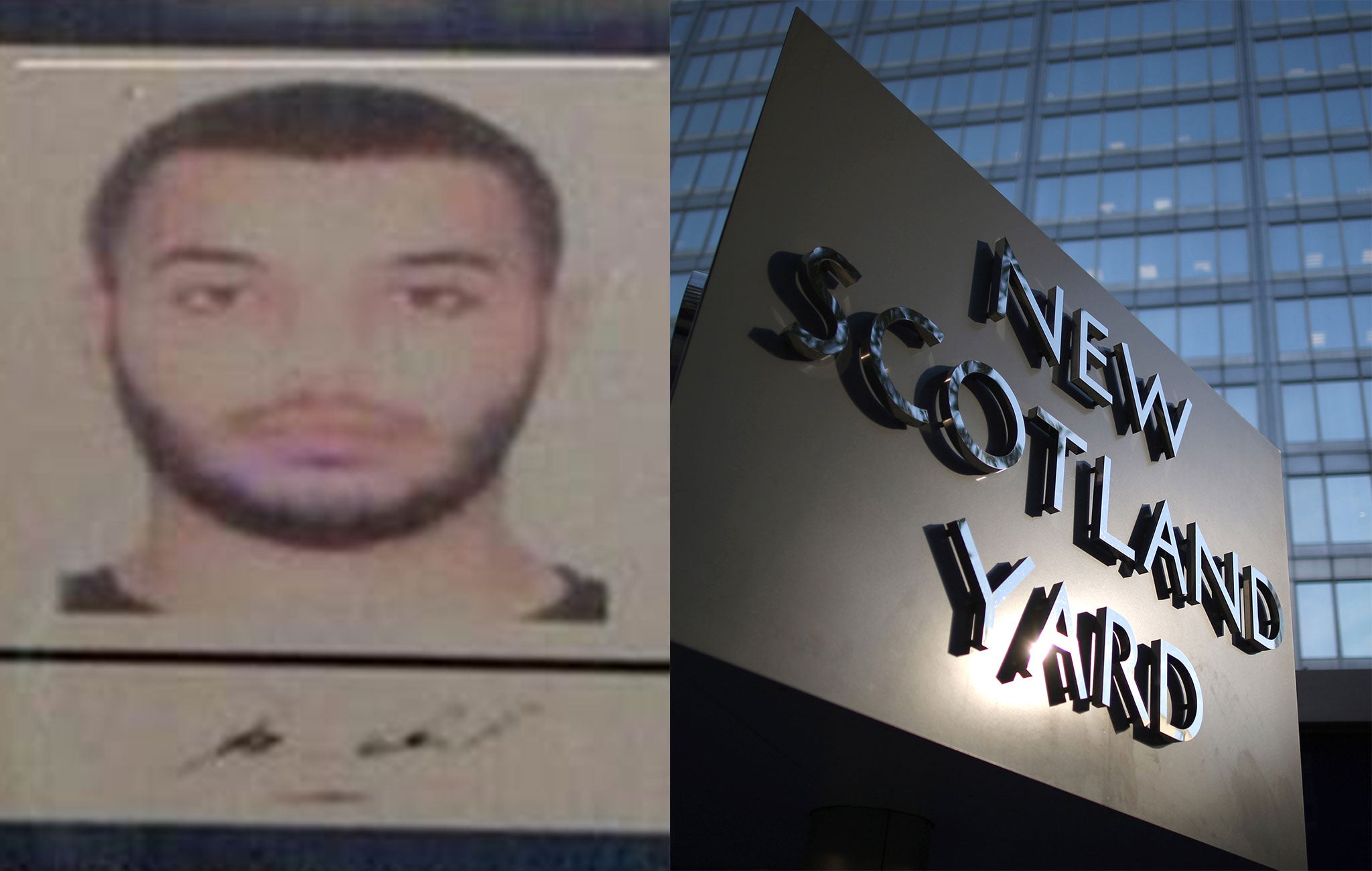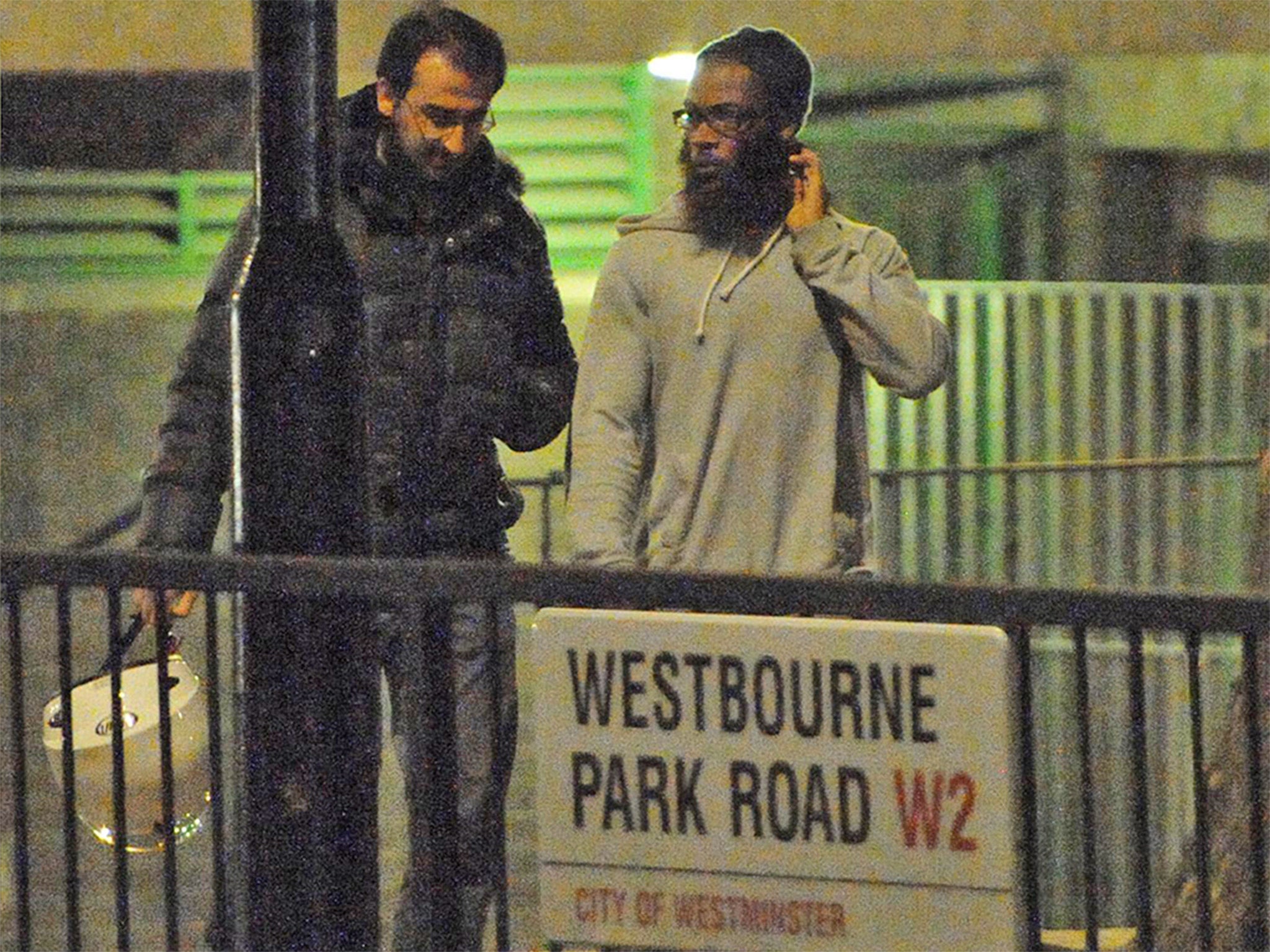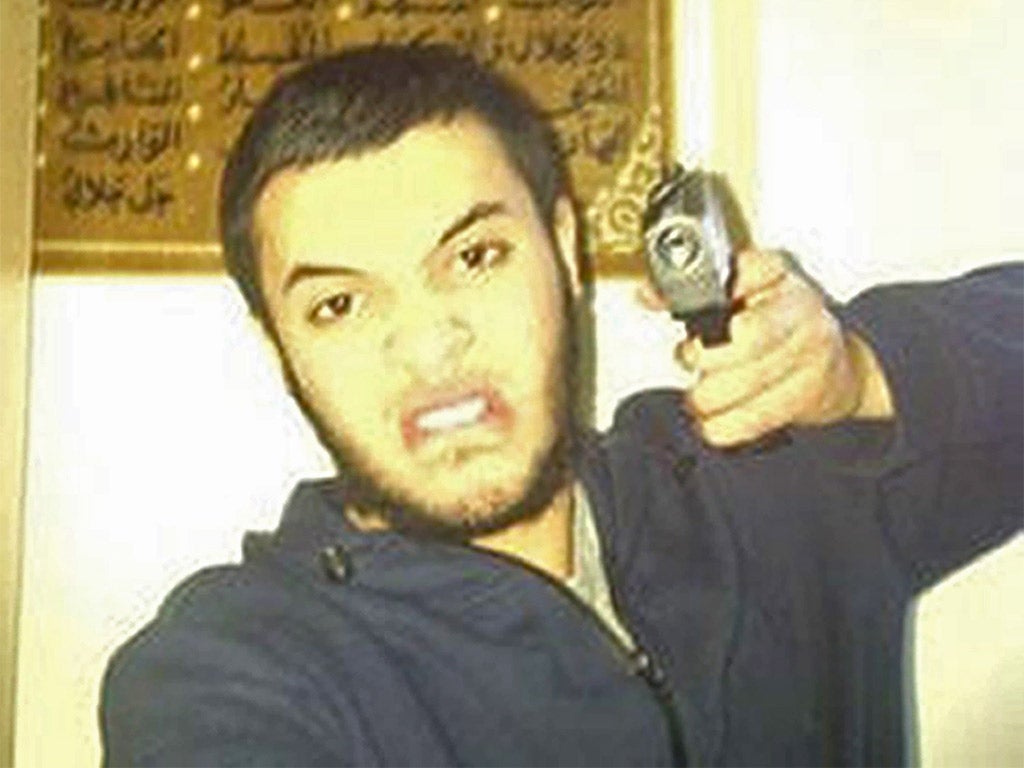'Drive-by jihad' plotters Tarik Hassane and Suhaib Majeedi jailed for life
A court heard how they identified Shepherd's Bush police station and an army barracks in White City as potential targets

A pair of home-grown terrorists have been given life sentences for plotting to kill soldiers, police officers and civilians in a series of Isis-inspired drive-by shootings.
Acting on instructions from Tarik Hassane, physics student Suhaib Majeed got his hands on a gun and ammunition and was discussing buying an untraceable moped before police swooped to arrest him in September 2014, a court heard.
His old school friend Hassane, nicknamed The Surgeon, was studying medicine in Sudan at the time but rushed back to London to become a "lone wolf terrorist" before he too was picked up, according to the prosecution. He identified Shepherd's Bush police station and the Parachute Regiment Territorial Army Barracks at White City as possible targets on Google Street View.
Majeed, 22, was found guilty of conspiracy to murder and preparation of terrorist acts after Hassane, 22, admitted the charges midway through a trial at the Old Bailey.
Two other defendants, Nyall Hamlett, 25, and Nathan Cuffy, 26, were acquitted of being part of the plot, but were sentenced for firearms offences.
Hamlett was handed six and a half years in jail while Cuffy received 11 years.
Hassane and Majeed, from west London, had links to the same mosque associated with Mohammed Emwazi, also known as Jihadi John, who achieved notoriety as a grisly executioner for Isis before he was killed in Syria.

Metropolitan Police Commander Dean Haydon said the terror plot was a "step up" in terms of complexity and the use of guns, which was a "real concern" for police.
Prosecutor Brian Altman QC had said Hassane and Majeed were heavily influenced by the rise of Isis, which pronounced a caliphate in June 2014.
Within days, Hassane pledged his allegiance to Isis and encouraged his friends to follow suit. He was pictured posing with a gun in one hand and a book on Osama bin Laden in the other.
His close friend Majeed was studying at the prestigious King's College London and was chairman of its Islamic society.

The court heard that Majeed sent a picture of a dead fighter "laughing" to a Telegram chat group named Turnup Terror Squad, of which Hassane was also a member.
And he had a "grim" video of Emwazi beheading a journalist on his iPad, jurors were told.
Majeed was an "essential cog" in the conspiracy, having set up a laptop to exchange encrypted messages with Hassane in Khartoum.
In them, Hassane repeatedly urged him to get the "P", "Z" and "C" together to set his deadly plan in motion. The prosecution said P was code for money, Z was for a "zoom zoom" or a moped and C was for "Creps" – a word for firearms, which were also referred to as types of trainers.
In September, they received encouragement when the official Isis spokesman issued a fatwa to kill disbelievers in the West in a speech on YouTube.
Later the same month, Cuffy supplied a self-loading Baikal pistol with silencer and bullets to fellow Muslim convert and former Catholic altar boy Hamlett, who passed it on to Majeed.
It was one of five guns the "street criminal" had stashed at his home in sports bags which he claimed he was holding for three joint owners.
When armed police raided Majeed's home, the student was spotted tossing the gun and ammunition out of his bedroom window.

In his defence, Majeed said he wanted to give the gun to Hassane, who had offered to frighten an associate called Fatboy into handing over cash owed him from a PayPal fraud they were involved in.
Hamlett knew Majeed and Hassane through the Al Manaar Muslim Cultural Heritage Centre in Ladbroke Grove, west London, where he used to work as a cook.
But he denied knowing what he had been asked to deliver to Majeed until the last minute. Cuffy also said he had no idea about the plot.
Cuffy, who worked at The Money Shop, had already pleaded guilty to possession of firearms with intent to endanger life relating to a small armoury of assorted guns at his home.
Majeed admitted having the Baikal self-loading pistol, silencer and ammunition but denied intent to endanger life. However, the jury convicted him of the more serious charge.
The judge told the pair: "It is shocking, tragic and deplorable that you, two young British men, educated through the UK school system, undertaking university courses, should be so influenced by the bloodthirsty version of Islam presented by Isis and other similarly minded groups, that you decided to take up arms against your fellow British citizens and those charged with protecting them in the streets of your own city."
The judge said in a "frank" account, Hassane had admitted visiting Syria in 2013 where he learned how to handle guns and spent time with a fighter who was killed.
On his return to the UK, having decided not to become a fighter too, he raised thousands of pounds to support extremist violence in Syria before becoming the "prime mover" in the murderous plot.
Earlier, the court was told that both Hassane and Majeed had now accepted their involvement in the plot to murder.
In his confession, Hassane had said he felt like he was in a "bubble" at the time but added: "I really doubt I could have ever done this."
PA
